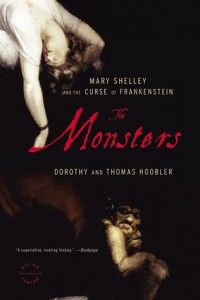 Title: You (Goodreads)
Title: You (Goodreads)
Author: Austin Grossman
Published: Mulholland Books, 2013
Pages: 383
Genres: Contemporary
My Copy: Library Book
Buy: Amazon, Book Depository (or visit your local Indie bookstore)
Russell was a nerd in high school but he seems to have left that part of his life behind. That is until he is employed by a games company called Black Arts. This company was the brainchild of two visionary game designers who once were Russell’s closest friends. Reunited with his former nerd crew, Russell soon finds himself in a race to save his job and the Black Arts legacy.
This book rang my nerd bells and I was excited to read this one; Austin Grossman has been working in the video gaming industry since the early 1990’s. A video game designer at Looking Glass Studios, he has contributed in the wiring and design of many games including System Shock, Deus Ex and Tomb Raider: Legend. I still consider myself a nerd, not so much a gamer anymore but I still enjoy playing my X-Box every now and then, so You seemed like a book for me.
Unfortunately there are parts of this book that worked really well but then the characters felt so underdeveloped and the plot nonsensical. This was recommended to me as something similar to Ready Player One which feels a little inaccurate. Ready Player One was almost like a love letter to the 1980’s and really played on the reader’s nostalgia. While You does try be nostalgic it only really works if you were a hard-core gamer in the 1980’s and 1990’s; there are games I recognised but there were also a lot I’ve never heard of or never played.
I’m not sure if You is meant to be a coming of age story of both Russell and the video gaming industry or if Grossman was going for the Hollywood hacker style plot. I felt at times that someone should have started yelling ‘Hack the planet’. Either way I don’t think the plot was developed enough and became lost in the geek talk. Then you have the characters, they seem to be completely underdeveloped. I never got a sense of any of the characters and that did feel like a letdown.
There are some interesting insights into gaming culture and the video game industry. So much so that if Austin Grossman abandoned the little plot he had and removed the characters, this would have made for a great non-fiction book. I’d be interested in getting insights into the gaming industry, especially in the 1990’s and 2000’s when I was a huge gamer. Maybe a memoir, or something similar to You but as non-fiction, would have been a better way to go; you’ll still get to talk about the industry and you can still gain that nostalgia Grossman was clearly after.
It’s hard to decide if I like You or not; there are some interesting elements but as far as plot and character development, it really fell short. You have to be a gamer or interested in gaming to really enjoy any parts of this novel. This really did limit him; at least with Ready Player One it mentioned music, movies and books from the 1980’s to help include the non-gamers. I’ve already said it but I really would have enjoyed this book more if it was non-fiction.

 Title: Twilight (
Title: Twilight ( Title: Consider Phlebas (
Title: Consider Phlebas ( Title: The Absolutely True Diary of a Part-Time Indian (
Title: The Absolutely True Diary of a Part-Time Indian ( Title: Winter's Bone (
Title: Winter's Bone ( Title: Alex (
Title: Alex ( Title: The Monsters (
Title: The Monsters ( Title: Guards! Guards! (
Title: Guards! Guards! ( Title: The Reader (
Title: The Reader (